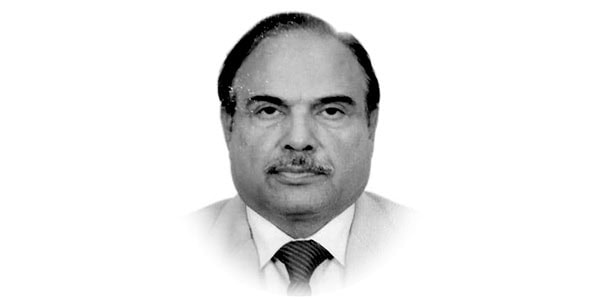Article 62(1)F provision can only be replaced by Parliament
CHIEF Justice of Pakistan Umer Ata Bandial observed that Article 62(1)F is a draconian provision of the Constitution and the court will be very much cautious in dealing with such matters.
A three-member Bench of the apex court headed by Chief Justice heard the petition of Faisal Vawda, filed against the verdict of Election Commission of Pakistan disqualifying him for lifetime under Article 62(1)F of the Constitution in a dual citizenship case.
The Election Commission of Pakistan on Feb 9, 2022 had disqualified Faisal Vawda, former MNA and Senator under Article 62(1)F of the Constitution in a dual citizenship case.
In the 27-page judgment, the Chief Election Commissioner had held that Faisal Vawda had submitted a false affidavit while submitting nomination papers for the 2018 elections.
The Supreme Court had ruled in April 2018 that disqualification handed down under Article 62(1)F of the Constitution was for life.
Following the judgment, the ECP had also denotified him as Senator. The debate over what it means to be Sadiq and Ameen has reignited after the incumbent Supreme Court Chief Justice described Article 62(1)F of the Constitution as draconian.
The Election Commission of Pakistan deemed Mr.Vawda dishonest after finding that Mr.Vawda had concealed his dual citizenship at the time he filed his nomination papers for a National Assembly seat before the 2018 election.
Mr.Vawda has appealed to the Supreme Court to set aside the lifetime bit of the ECP disqualification ruling.
He has argued that the court should consider men’s real intentions, a lack of criminal intent in his failure to disclose his U.S.nationality.
He has further argued that since the Supreme Court has already ruled that the ECP cannot be considered a court of law, the latter cannot make a declaration to disqualify him under Article 62(1)F.
While the Supreme Court deliberates whether Mr.Vawda can be considered honest or not, it is worth remembering that he is not the only lawmaker facing a lifetime ban from politics under the law.
In the recent past, several other politicians, most notably Nawaz Sharif and Jahangir Tareen, have been handed similar sentences.
It is also worth remembering that while Article 62(1)F never did mention the length of disqualification for dishonesty, it was a five-member Bench of the apex court, of which the current Chief Justice was a part, which unanimously ruled in 2018 that such ineligibility should be considered for life.
The Supreme Court Bar Association disagreed and appealed to the apex court earlier this year against a lifetime ban.
However, that petition is still pending adjudication. It is hoped that Chief Justice of Pakistan is now looking at Article 62(1)F from a fresh perspective, as its clause was included through 8th amendment in 1985.
Honourable Chief Justice will find many good reasons to do so. Defining sagacious righteous non-profligate honest and Ameen in a manner that is universally acceptable as any law should be, has so far stumped some of the finest legal minds of our age.
Ultimately, however, the responsibility rests with Parliament to replace the nebulous requirements laid out in Article 62(1)F with something more concrete and quantifiable.
The Supreme Court had stated in 2018 when it held that disqualification was for life, that it was only interpreting the law as it was.
Therefore, instead of repeatedly stumbling over the optics of what touching Article 62(1)F would like, our members of Parliament need to hold firm and make only reasonable changes required for the sake of stability and continuity of the political order and may be kept in view the original Constitution passed by the Constituent Assembly in April 1973 and imposed on 14 August, 1973.
With reference to my visit to India, I have witnessed that the Indian government and the Supreme Court of India had given full protection to the Independent Election Commission of India.
The Chief Election Commissioner of India and the members of Election Commission consist of three members including Chief Election Commissioner who acts as the Chairman of the Election Commission.
The Indian Election Commission has full control over the conduct of political parties. No political party can violate electoral laws and code of conduct and the rules and regulations of the Elections Commission.
The Indian Election Commission are obliged to protect the Indian Constitution and State sovereignty.
The Indian Election Commission does not serve the interest of the government but the interest of State, Constitution and also to protect the Secularism.
The Supreme Court of India also issues the guiding principles. Article 62(1)F ensures that no corrupt person can enter the corridors of Parliament.
Article 62 and 63 of the constitution and Article 63(E) are the custodian of Article 2(A) of the Constitution.
The Indian Government and the Supreme Court have given full protection to the Indian Election Commission. The Chief Election Commissioner is equal and enjoy same powers.
—The writer is former Secretary Election Commission of Pakistan and currently Chairman National Democratic Foundation.










